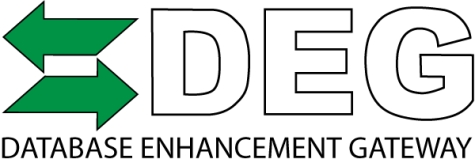The Database Enhancement Gateway (DEG) is a website, initially created by three national trade associations---the Alliance of Automotive Service Providers (AASP), the Automotive Service Association (ASA) and the Society of Collision Repair Specialists (SCRS)---that enables anyone to submit inquiries about labor times or operations in any of three estimating systems, and to see the information providers' responses to these inquiries.
In addition to questions about labor times or allowances, the DEG can be used to submit inquiries about any aspect of the estimating databases and system: inaccurate part numbers, missing parts, incorrect or missing labor notes, incorrect part descriptions, etc.
For example, DEG Inquiry No. 7936, submitted in 2015, was triggered when an estimator felt the labor allowance in one of the databases for replacing the outer rocker panel on a 2013 Honda Accord was insufficient given the number of welds and time required. The next day, after reviewing the procedure, Motor Information Systems, which provides the estimating database used in the CCC Information Services estimating system, agreed, changing the allowance from nine hours to 11.
The DEG also offers a handful of other free tools that can be of use to estimators. Its “Estimate Toolbox” section, for example, includes access to downloadable copies of the estimating guides---often generically referred to as “P-pages”---for the Audatex, CCC or Mitchell International estimating systems.
Although formally launched in late 2007, the DEG's roots actually go back to a project launched in 2001 by the Collision Industry Conference (CIC). At that time, Hawaii shop owner March Taylor---also a working technician until his death in 2007---began a volunteer effort through the CIC website to collect, research and process hundreds of inquiries about the estimating databases.
Although the major estimating system providers have long provided a way for anyone in the industry to submit such inquiries directly to them, Taylor believed a centralized inquiry system would be easier to use and offered a way for the industry to monitor what happens to such inquiries.
As the number of inquiries submitted and tracked on the CIC website grew, a number of industry groups began discussing a more formalized organization and system for database inquiries.
The three trade associations agreed to work together to create and initially fund what became known as the DEG. The DEG, which charges its users nothing for the service, has since expanded its funding sources through a sponsorship program, but it is still managed jointly by SCRS and AASP.
A key goal for the DEG is to make the database inquiry process not only free but also simple and quick to use. The website includes a brief explanation of the process and tips for submitting a clear and complete inquiry. But the process involves little more than filling out a brief form identifying the vehicle, the area or part of the vehicle involved, and including one or two sentences explaining what information you feel is missing or inaccurate in one of the estimating databases.
The DEG then posts the inquiry to its website and submits it to the estimating database company. Once that company reviews the inquiry, it provides its response---indicating what change, if any, it is making in response to the inquiry---to the DEG, which posts it to the website and forwards it on to the person submitting the inquiry.
Although the entire process can sometimes be completed in just one or two days, some inquiries require more research; the database of inquiries on the DEG website lists the resolution time for each.











John Yoswick